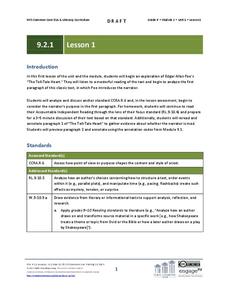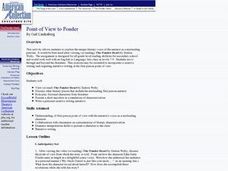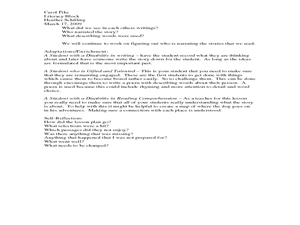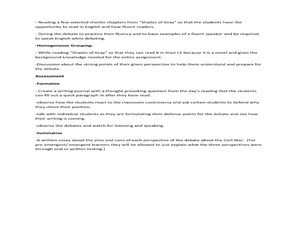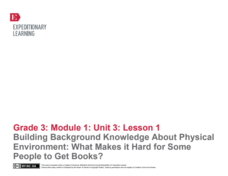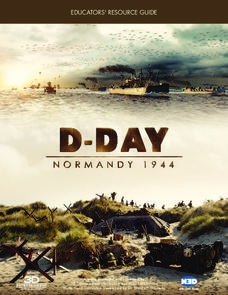EngageNY
Grade 9 ELA Module 2: Unit 1, Lesson 1
Once conceived, a guided set of literary analysis lessons will assist you day and night. Ninth graders look closely at "The Tell-Tale Heart" and analyze how Poe uses point of view to create questions about the narrator's sanity and...
Curated OER
Hawthorne: Author and Narrator
Learners examine the difference between a narrator and author. They read Nathaniel Hawthorne's novel, 'The Scarlet Letter,' write a description of the narrator, and research how Hawthorne was impacted by the politics of the time.
Curated OER
Things Aren't Always What They Seem
Students use video and the Internet to make predictions, draw conclusions, determine conflict and point of view while reading a short story. In this short story analysis lesson plan, students watch a related video and complete a...
Curated OER
Through the Eyes of the Big Bad Wolf
Imagine how the wolf would tell the tale of Little Red Riding Hood or The Three Little Pigs. Young writers re-imagine classic tales by adopting the point of view of another character in the story. After reading models like The True Story...
Curated OER
Point of View to Ponder
Students view (or read) The Ponder Heart by Eudora Welty. They
discuss other literary pieces that include the misleading first person narrator. They
role play fictional characters from literature and present a short anecdote in a...
Curated OER
Express Yourself Lesson Seed 8: Character
Characters often change over the course of a story or novel. Use the sample graphic organizer provided here to track how the narrator has responded to the sequence of events in chapter four through six of The Cay. In addition to this...
National Endowment for the Humanities
Narrative Voice in Moby Dick
Call him a reliable narrator! Ishmael is the focus of a lesson that asks readers to analyze the complex character of Herman Melville's narrator as he is introduced in the first chapter of Moby Dick.
EngageNY
Grade 9 ELA Module 2: Unit 1, Lesson 3
Hearken! and observe how well a literary analysis unit can help ninth graders read closely and connect text structure to a central idea. Focusing on Edgar Allan Poe's "The Tell-Tale Heart," learners take notes and track the development...
Curated OER
Where the Red Fern Grows Chapter 1 Worksheet
Break down Where the Red Fern Grows by Wilson Rawls into manageable chunks by focusing on plot points and literary elements in specific chapters. This resource is all about the first chapter, and asks pupils to use complete sentences to...
Penguin Books
A Teacher's Guide to the Signet Classic Edition of Edith Wharton's Ethan Frome
Is it possible to have too much concern for others? Can we be trapped by our expectations as well as those of society? Edith Wharton's chilling tale of Ethan Frome asks these and other disquieting questions. Signet's guide to Ethan Frome...
Curated OER
Describing Our Senator
Third graders find the narrator or speaker in a story. In this story elements instructional activity, 3rd graders listen to the story My Senator and Me and answer comprehension questions. They complete a descriptive writing piece from...
Curated OER
Writing Sentences Lesson Plan
Students explore first person and third person points of view. In this perspective lesson, students identify first person and third person points of view in literature they have read. Students rewrite stories from different perspectives.
Curated OER
Creating an Oral History--Who Tells the Story?
Explore the difficulties in compiling an oral history with this lesson. Young researchers conduct interviews and consider how point of view changes various accounts of a single incidence, resulting in conflicting information. They view a...
Curated OER
Prairie Poetry
Ninth graders take note of the ways in which word choice, rhythm, language and narrative voice, as well as point of view in a poem can be used to evoke a time and place. They use their insights to create a poem of their own.
Curated OER
Pronouns and Perspective
In this pronouns and perspectives activity, students underline all pronouns in short passages and tell whether they are written in 1st, 2nd or 3rd person.
Creative Visions Foundation
Studying Documentaries Like a Writer - Looking For Persuasive Techniques
Revisit the documentaries viewed in the previous instructional activity in this series in order to take a look at the persuasive techniques employed by the documentary creators. Small groups watch the films a second time, taking notes on...
Curated OER
"A Sound of Thunder" by Ray Bradbury: Questions
These questions are designed to accompany Ray Bradbury's "A Sound of Thunder," and could be used to guide and focus readers or as an assessment of reading skill and knowledge of the elements of a story. Page one focuses on questions of...
Novelinks
The Devil’s Arithmetic: Concept Analysis
A helpful guide to Jane Yolen's The Devil's Arithmetic for your literature unit. Use the sections on point-of-view, dramatic irony, and background knowledge, among others, to frame your lessons in an engaging and educational way.
Curated OER
Civil War Perspectives
Fifth graders have a debate and defend one of the three different perspectives of the Civil War. In this Civil War lesson plan, 5th graders defend either the North, the South, or the Neutral perspectives.
EngageNY
Building Background Knowledge About Physical Environment: What Makes it Hard for Some People to Get Books?
How far would your pupils go to be able to have access to books? Revisit Heather Henson and David Small's That Book Woman and challenge class members to take on the role of Cal or the Book Woman. By putting themselves in someone else's...
D-Day Normandy 1944
D-Day Normandy 1944
No study of World War II would be complete without an in-depth examination of the events of June 6, 1944. Pascal Vuong's D-Day Normandy:1944, is the perfect vehicle to convey the sheer magnitude of the events that have been called the...
MENSA Education & Research Foundation
Magical Musical Tour: Using Lyrics to Teach Literary Elements
Language arts learners don't need a lecture about poetry; they listen to poetry every day on the radio! Apply skills from literary analysis to famous songs and beautiful lyrics with a lesson about literary devices. As class...
Curated OER
Identify Narrative Perspective
In this narrative perspective worksheet, students read short passages and underline, circle or highlight whenthe narrator tells that a character's thoughts or feelings, then determine point of view.
Novelinks
The Little Prince: Concept/Vocab Analysis
Focus on the literary elements of Antoine de Saint-Exupéry's The Little Prince with a concept analysis sheet. With suggestions and explanations for many of the book's concepts, vocabulary, and other issues that may arise in instruction,...


